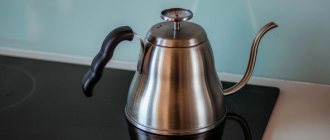March 30, 2021 April 14, 2021
- How water affects your health Dehydration
- Excessive fluid intake
- How much water to drink per day?
- During pregnancy
Water is the basis of our life. As you know, a person cannot live more than four days without water, and the loss of only 1% of fluid by the body causes thirst. Our health, the condition of the epidermis and hair, and the well-being of a person as a whole depend on the amount of water we drink. The percentage of water in the human body varies depending on age. So, a newborn consists of 90% water. But with age, the amount of fluid decreases, and by old age the percentage of its content in the body decreases to 60%. Unfortunately, it is impossible to stop this process completely. However, it is within our power to adhere to the drinking regime and maintain the correct water balance for as long as possible, prolonging our lives and maintaining health.
How water affects health
Water is involved in all biochemical processes of the body, such as:
- metabolism,
- digestion,
- hematopoiesis,
- regulation of blood pressure,
- thermoregulation,
- removal of toxins.
Disruption of these processes affects the condition of hair, skin, nails, as well as the functioning of all body systems, the musculoskeletal system, and the brain. No wonder doctors believe that dehydration can cause confusion and headaches. After all, the human brain is 75% fluid. It's the same with blood. The less water in our body, the thicker the blood and the higher the pressure. That is why hypertensive patients need to monitor their water balance especially carefully. When the body feels a lack of water, it begins to intensively produce histamine, a hormone responsible for the immune response in a situation that is alarming for the body. However, an excess of histamine activates not only the immune system, but also allergies. This is why maintaining a drinking regime for allergy sufferers is especially important. Water dissolves and delivers a variety of nutrients to tissues. Without water, normal functioning of joints and muscles is impossible. With its deficiency, the likelihood of arthrosis and osteochondrosis sharply increases due to the constant wear and tear of fragile cartilage tissue. People suffering from diabetes must control their blood sugar. Drinking a glass of water instead of juice or a sugary drink helps them keep their sugar levels under control. While drinks containing sugar can cause a sharp rise in its level in the blood and increase thirst.
Dehydration
When dehydrated, the body draws water from cells to maintain its most important functions. As a result, cell functionality is impaired. The blood thickens and moves more slowly, and accordingly, oxygen arrives with delays.
Signs that indicate you are not drinking enough water:
- feeling of thirst and dry mouth;
- dark yellow urine;
- peeling of the skin, cracks on it;
- headache;
- drowsiness and lethargy;
- cardiopalmus.
Unfortunately, at the very beginning, these signs may appear separately, not give an overall picture of the problem, or be attributed to the manifestations of other diseases.
Excessive fluid intake
Healthy adult kidneys can process up to one liter of water per hour. Anything more than this can be considered harmful and even dangerous. In ordinary life this practically never happens. However, under a number of circumstances this is possible, as a result of which a person may drink an excessive amount of water.
Excess water, that is, drinking more than 4-5 liters of water per day, is fraught with the following consequences:
- increased kidney function;
- increased protein breakdown;
- increased sweating;
- leaching of the necessary salts and disruption of the salt balance;
- diluting gastric juice and slowing digestion.
In addition, people with liver and kidney diseases should be more careful when drinking water. Excessive intake of liquids for them can be hazardous to health. In this matter, they need to strictly adhere to the doctor’s recommendations.
Should I limit my consumption?
How to find out how much water a person needs to drink per day if we are talking about a situation where there are health restrictions? For example, with heart and kidney diseases, people have to limit themselves to minimal amounts of fluid intake. It is also worth paying attention to situations where, after drinking in the evening, swelling forms in the morning. In most cases, people try to limit the amount of water they drink. Whereas the root of the problems lies in something completely different. And you need to clarify not how much water a person needs to drink per day in order to achieve the absence of edema, but simply reduce salt intake. It is this that forms fluid stagnation in the tissues and prevents its normal outflow.
When does water become hazardous to health? Only in cases where there are medical contraindications for its ingestion in large quantities. In other situations, you can provide opportunities for healing the body and replenish the necessary fluid balance by simply following the recommendations established by WHO.
What is included in the drinking regime?
One of the most common misconceptions is that the drinking regime is equated to drinking liquids in general, including all drinks that enter our body. It is important to remember that juices, fruit drinks, soda, milk, coffee, tea cannot replace water. Our body perceives them as food and spends maximum effort to extract water from them. To function properly, the human body needs a certain amount of pure water. You can calculate how much water you need to drink per kg of weight using a simple formula - we’ll talk about this further.
How much water to drink per day?
The statement that all people need to drink 8 glasses of water per day is not entirely accurate. The required volume of water should be calculated based on the individual characteristics, lifestyle, weight and age of a particular person. It is worth taking into account physical activity during the day, the presence of chronic diseases, weather conditions and some other indicators.
You can calculate how much water to drink per day by weight from the infographics below.
| Adults under 50 years old | After < 50 years |
| 40 milliliters per 1 kg of weight | 30 milliliters per 1 kg of weight |
An adult needs about 30 ml of water per day per kilogram of body weight. For a person weighing 50 kg, 1.5 liters are needed, 60 kg - 1.8 liters, 70 kg - 2.1 liters, 80 kg - 2.4 liters of water every day.
Correct drinking regime
Basic Tips
- Drink a glass of water at least 30 minutes before breakfast;
- It is better to drink raw water, that is, the water should be undistilled and unboiled;
- Do not drink water while eating;
- Drink more during physical activity, on hot days, during pregnancy and breastfeeding, and in case of poisoning.
People who lead a healthy lifestyle have probably heard that it is not recommended to drink water during meals. This dilutes the stomach acid, preventing food from being digested. Foods have an approximate digestion time - you should use this as a guide when deciding when to drink after a meal. Digestion of dairy products takes the longest time - more than two hours; bread products and pasta will occupy the stomach for more than an hour. Remember that the duration of digestion also depends on the volume of food eaten - the more, the longer.
Why is it important for a person to determine how many liters of water to drink per day? The fact is that due to the fast and stressful pace of our lives, we sometimes forget about the needs of our body, and even a slight lack of fluid can lead to dehydration and poor health. The easiest way to calculate whether you are drinking your fluid intake is visually. Use a reusable water bottle, refilling it every time it's empty and recording the data. For example, the eSpring water bottle from Amway is made in a compact size, which will allow you to carry it with you without any problems, and most importantly, it has measuring divisions to control the amount you drink. Its material does not contain toxic bisphenol, and the design is easy to disassemble and clean, which prevents the possible growth of bacteria on the walls. This simple method will help you organize the correct water consumption regimen and stick to it constantly.
What happens if you drink more than normal?
Drinking too much water can cause low levels of sodium in the blood, which maintains the balance between fluid inside and outside cells. When sodium levels drop, water moves out and causes cells to swell. This can cause headaches and nausea, and in rare cases lead to cerebral swelling and coma. This condition is called overhydration or water poisoning.
However, there is no need to worry too much. For this to happen, a person must drink over 4 liters in a short period of time, without going to the toilet and sweating less than usual.
This information is rather relevant for professional athletes. Thus, of the 488 participants in the 2002 Boston Marathon, 13% had symptoms of hyponatremia (a consequence of overhydration), and 0.06% had critical hyponatremia.
Photo: unsplash.com/@da_sikka_x
Ordinary people need to understand that consuming large amounts of water is an additional burden for the kidneys, which cleanse about 1,700 liters of blood from toxins per day. According to a 2013 study, the kidneys can excrete no more than 0.8-1 liters per hour. The authors report that symptoms of overhydration develop if a person drinks 3-4 liters of water in a short period, but they do not give a precise estimate of time. One experiment shows that it is harmful to drink more than 2 liters of water per hour, another - more than 5 liters over several hours.
Consequences of excess water in the body:
- rapid weight gain;
- swelling, including cellulite;
- increased blood pressure;
- increased sweating;
- disruption of the functioning of internal organs such as the kidneys, heart and lungs.
What kind of water should you drink?
The most useful is raw water, that is, undistilled and unboiled water. However, in our environmental conditions, tap water carries many harmful impurities. Therefore, it must be filtered using powerful purification systems.
Boiling removes magnesium and calcium salts from water, which the body requires. And besides, there is practically no oxygen in boiled water.
It is unacceptable to drink mineral water uncontrollably and a lot - it is enriched with minerals and salts, which, if constantly introduced into the body, can accumulate and have a negative effect. The composition of mineral water affects the solution of specific problems, and a gastroenterologist should recommend it.
It is safest to use water after high-quality and reliable purification systems. The eSpring water purification system for the home purifies water using a carbon filter, which eliminates many substances hazardous to health (more than 140), after which the water is irradiated with an ultraviolet lamp, which destroys up to 99.99% of pathogens of infectious diseases. Thus, the output is clear, clean water of excellent quality, which does not need to be boiled and is safe for use even by 6-month-old infants.
How long do alcoholics live?
The life expectancy of those who suffer from alcoholism is significantly reduced. 20% of patients live more than 50 years. Acute heart failure often causes early death in drunkards under 40 years of age. A dangerous habit is fraught with a significant deterioration in quality and a decrease in life expectancy. The risk of leaving this world prematurely increases. There is no clear answer to the question of how long alcoholics live. Much depends on the age at which a person developed a harmful addiction, whether there are associated problems, etc. That is, the life expectancy of a drinker is determined by the strength of the body. Sudden deaths before age 30 are common. The average life expectancy is 48-55 years. However, this is under fortunate circumstances. 25% of addicted people do not live to reach the specified age mark.
Only by stopping drinking in a timely manner does a person suffering from an illness get a chance to prolong their life. However, in many cases, medical assistance cannot be avoided. Then a person will be able to cope with addiction and get rid of addiction.
The relationship between water and weight
On the Internet you can find many articles on the relationship between water and weight loss. To a certain extent, drinking pure water does promote weight loss, largely due to the fact that it suppresses appetite. Very often, when we want to snack on something, our body is actually signaling the desire to drink. And drinking a mug of water will completely satisfy this desire, while eating a sandwich or other snack will bring with it new kilograms.
Many women are concerned about the question: how much water should you drink to lose weight? Experts believe that when losing weight, you need to increase your water consumption by 30% relative to the calculation. First of all, this is due to the fact that at the time of the breakdown of adipose tissue, there is an active release of toxins, which are removed from the body thanks to water. Also, when losing weight, girls often use protein diets, and water is also necessary for proper breakdown of protein.
In special situations
There are a number of situations and conditions that provoke an increased need for water.
- Smoking dries out the mucous tissues of the nasopharynx, which causes a decrease in local immunity and increases vulnerability to infections. Smokers need to increase water in their diet by 60%.
- Viral diseases and elevated body temperature force the body to lose a lot of moisture, so during illness it is advisable to significantly (almost double) increase water intake.
- Lactation. A large amount of fluid is required for milk flow. Any nursing mother should increase the amount of water consumed per day by an average of 50% and even 150% if there is little milk coming.
- During increased physical activity, athletes should drink twice as much water, because during training the body loses a lot of water through sweat.
- When taking diuretics, diarrhea or vomiting, the water balance must also be replenished with additional fluid.
During pregnancy
During pregnancy, some expectant mothers limit themselves to drinking due to fear of polyhydramnios. This is a misconception. Water is necessary for the proper course of pregnancy, and the amount of amniotic fluid is in no way related to the volume of fluid consumed, but is a consequence of previous diseases. Swelling is also a concern for pregnant women. However, water itself, even in large quantities, cannot lead to edema. But in combination with diabetes, with the consumption of salty and spicy foods, with the lack of the required amount of protein in the diet, you will be guaranteed swelling. If they appear, we recommend that you immediately consult a doctor to determine the exact cause of their occurrence.
Even during a normal pregnancy, you should not drink a lot of water in the evening. This can have a negative impact on the quality of your sleep.










